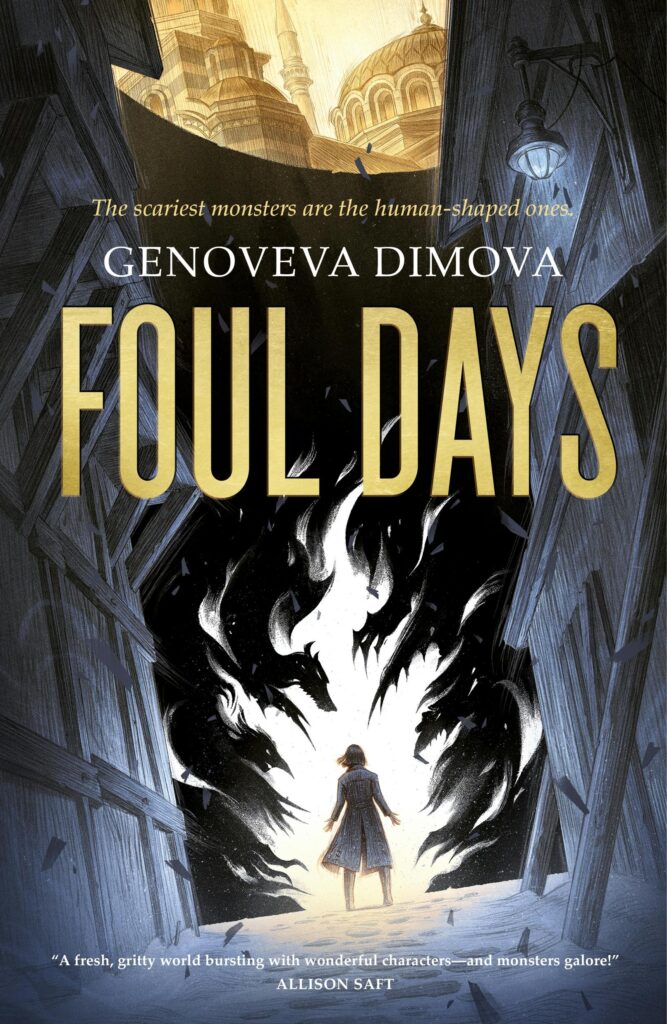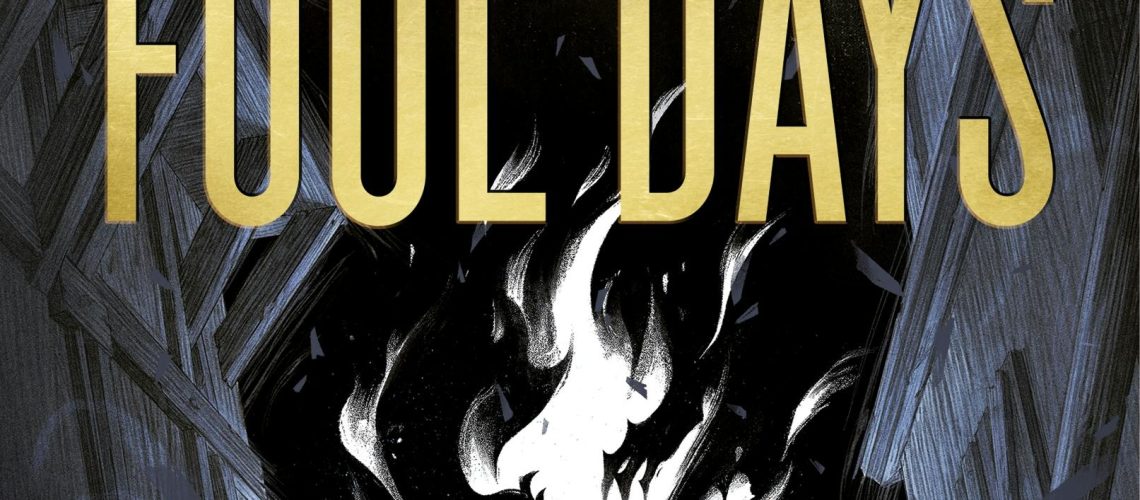Rather than celebration, New Year’s in Chernograd is about survival. With the changeover of years comes the Foul Days, twelve days where the veil separating worlds thins and monsters descend upon the city. More monsters than a normal Chernograd day, that is. Separated from the neighboring Belograd by a massive wall magically constructed and tentacle-defended, the lower class citizens of Chernograd are trapped within to live in a reality that the more affluent Belograd can now safely ignore. The wall functions to fully confine all the monsters to Chernograd. The inconvenience to the humans who also live there is but a small price to pay, after all. For humans, travel across the wall between cities is both illegal and exceptionally dangerous. But money and power facilitate a criminal underworld of smuggling and costly magical tools to circumvent the wall’s dangers.

Within a Chernograd pub as the hour is about to turn over into Foul Days, self-described mediocre witch Kosara plays a high-stakes card game with two fellow monster fighters and a stranger who wears a necklace with multiple witches’ shadows, the source of their power, contained within. He offers this necklace as a bet against Kosara’s shadow. But before Kosara can respond to this terrific opportunity and deadly risk, midnight strikes. The monsters begin to arrive outside, trying to gain entry into the pub. And it becomes clear that this mysterious fourth player with the collection of witches’ shadows is a traveler from Belograd who seems unaware of the Foul Days’ reality and significance.
In contrast to the stranger’s nervousness and rising fear, Kosara remains calm. She has experience with all sorts of monsters, and is confident of being able to defend against almost any that might break in. All except the Zmey, the Tsar of the Monsters, a powerful creature of evil who is also the most human of all the monsters. A controlling man who Kosara has been coercively involved with, who is intent on getting her back into his grip. Of course, who shows up outside to threaten the pub, but the Zmey. With hardly a moment to register that someone must have betrayed knowledge of her whereabouts to the Tsar of Monsters, Kosara becomes forced to flee, hastily agreeing to let the stranger teleport her past the wall into Belograd and safety, just for the cost of giving up her shadow. Thus, Kosara finds herself alone in Belograd to find some way to recover her shadow before it’s too late, to discover why she has been betrayed, and to come up with a way to be rid of the predatory Zmey for good.
Dimova writes Foul Days as an amalgamation of traditional Slavic folklore, an urban fantasy style and tone, and social themes very much of the moment. The world of Chernograd and Belograd at times recalls Eastern European cities centuries ago and set pieces of epic fantasy, but then the characters speak and behave as though a part of our world of today. The character of the Zmey serves as a good example of the combination of old and new elements that Dimova uses here. The monster comes from traditional legends of a dragon that takes the form of handsome man to lure young maidens to their doom, a modus operandi that Dimova casts in modern light.
As someone who isn’t a particular fan of urban fantasy, I found the tilt of Foul Days away from traditional or gothic folklore to be a downside. Though the opening chapter immediately hooked me, I subsequently found the novel harder to get into due to the tone of the narrative and voice of the characters. For all the monsters mentioned and sometimes appearing, they weren’t much of a scare, or threat (with the exception of the Zmey.)
Moreover, I found the character’s motivations, development, and interactions difficult to believe beyond as means to move the plot forward. The presence of a potential investigative and romantic partner for Kosara is an example of this, where the genre tropes just don’t quite work, feeling flat. Similarly underdeveloped or utilized are the other secondary characters of the novel, from Blackbeard the pirate, to Kosara’s Baba-Yaga-inspired mentor, to Kosara’s fellow monster-fighting card players from the first chapter who have later importance.
Despite this, Dimova does move the plot of Foul Days forward at a great pace, with well executed turns/surprises, a satisfying conclusion, and a tantalizing thread for the second book of this planned duology to take up. The result is an entertaining read, particularly for readers who enjoy urban fantasies and the comforting flair of familiar tropes.







